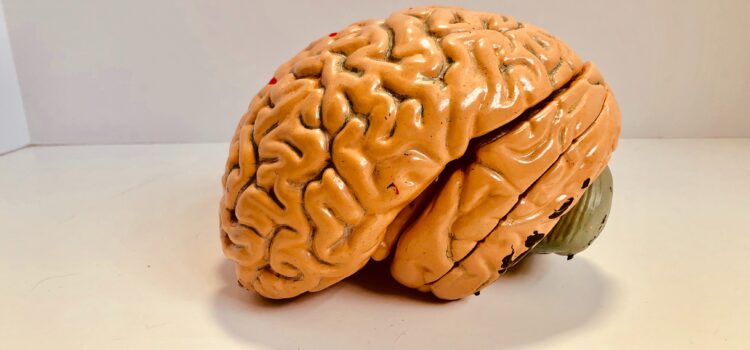

This article is an excerpt from the Shortform book guide to "How Not to Die" by Michael Greger. Shortform has the world's best summaries and analyses of books you should be reading.
Like this article? Sign up for a free trial here .
Are there any hereditary causes of Parkinson’s disease? Can Parkinson’s disease be deadly?
25,000 people die from Parkinson’s every year. Most cases of Parkinson’s disease aren’t genetic, although people who are diagnosed with early-onset Parkinson’s disease are likely to have inherited it.
Keep reading to learn more about Parkinson’s disease prevention, mechanisms, and causes.
The Mechanism of Parkinson’s Disease
Dopaminergic neurons in the part of the brain called the substantia nigra control movement. In Parkinson’s, these cells die off. 70% of the cells could be dead before symptoms appear. Head trauma increases risk of Parkinson’s (think Muhammad Ali). So wear helmets, and don’t box or play football.
Toxins Linked to Parkinson’s
Toxins have been linked to elevated levels of Parkinson’s. Parkinson’s brains show elevated levels of pesticides and PCBs. The higher level of pollutants, the more damage seen in the substantia nigra.
Chemicals flow into oceans and into animal feed, and then get concentrated in meat.
Toxins last in the environment for a long time.
- The halflife of mercury is 2 months. The halflife of dioxins, PCBs, and DDT is much longer, as long as 10 years.
- Breast milk shows higher concentrations of pollutants in the first pregnancy vs. subsequent ones. This suggests toxins accumulate in the mother’s body over decades, then are extruded through milk.
Top sources of common toxins:
- Arsenic: poultry, tuna
- Lead: dairy
- Mercury: seafood
- DDT: fish
- PCB: fish and fish oil
- Hexachlorobenzene: dairy and meat
- Dioxins: butter, eggs, processed meat
Children are more at risk of arsenic, the pesticide dieldrin, dioxins, and DDE (DDT by-product).
Aren’t most of these toxins banned from industrial usage? How do they get into meat even after they’ve been banned?
- Toxins get concentrated down the food chain. Toxins appear in rain and water at low levels and enter plants. Then animals that eat a large quantity of those plants, like cows and pigs, severely concentrate the toxins in their meat.
- Animal feed sometimes consists of animal trimmings itself, and animals further concentrated by eating other animals. So toxins accumulate in generations of cannibalistic animals, then we eat the animals that have highly concentrated toxins.
Finally, these toxins show a link to Parkinson’s Disease.
- Toxins cause direct damage to protein folding: pesticides are able to trigger accumulation of alpha-synuclein proteins in vitro.
- Eating more than half an egg a day is associated with 2-3 times higher odds for cancers of the mouth, colon, bladder, prostate, and breast. THis might be because of dioxins.
- The risk of Parkinson’s may increase 17% for every daily cup of milk drunk.
- This may not necessarily be due to toxins, since the effect seemed more closely tied to lactose than to milk fat, and to milk than to butter. Galactose could be the culprit.
- Milk may also lower uric acid, an antioxidant in the brain.
Constipation is associated with Parkinson’s.
- This could be because Parkinson’s causes a lack of thirst and decreases fluid intake.
- Alternatively, it could be causative—the longer feces stay in the bowel, the longer time feces can be absorbed from the diet.
Parkinson’s Disease Prevention
The following Parkinson’s disease prevention guidelines are taken from How Not to Die by Gene Stone and Michael Greger:
Nicotine
- Smoking has repeatedly been associated with lower Parkinson’s risk.
- Obviously smoking comes with all sorts of other problems, so it’s best to get nicotine from outside the diet. The highest non-tobacco sources of nicotine are in bell peppers, then tomatoes, and small amounts in potatoes. Pepper eating is associated with lower risk of Parkinson’s.
Plant-based diet
- People who eat dairy-free, plant-based diets show lower levels of PCB toxins associated with Parkinson’s.
- Mercury in the hair of plant-based diet eaters were up to 10x lower than in hair of people who ate fish.
- A plant-based diet removes 98% of dioxin intake.
Berries and flavonoids
- Flavonoids inhibited alpha synuclein deposits from accumulating in vitro
- A population study showed berry eating does lower risk of Parkinson’s.
Coffee and caffeine
- Coffee consumption is associated with 1/3 lower risk of Parkinson’s.
- Caffeine seems to be the main effector—tea is protective, but decaf is not.
- Giving the equivalent of 2 cups of coffee per day in caffeine improved movement symptoms in Parkinson’s patients in 3 weeks.

———End of Preview———
Like what you just read? Read the rest of the world's best book summary and analysis of Michael Greger's "How Not to Die" at Shortform .
Here's what you'll find in our full How Not to Die summary :
- The health benefits of a plant-based, whole-food diet
- How to reduce your risk of developing the most common diseases that can kill you
- The 12 foods you should eat daily to maximize health benefits







My spouse completed the recommended Parkinson disease treatment plan last week, she is doing a lot better. There has been a total reduction of symptoms, improved coordination, I am really happy we made a good decision by using these herbal remedies